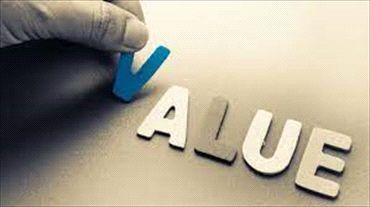By duda
•
07 Sep, 2023
If you're looking for ways to grow the value of your business, whether that is because you are thinking about selling or just because you are wanting to grow the company, these are 4 simple things you can do to accomplish that. Check out the article below or watch the video HERE. John Martinez here with First Choice Business Brokers, where we help business owners sell their businesses and help those who are interested in buying a business find one that's the right fit for them. Today I want to talk about one of the seven ways to make your business more valuable if you're considering selling, or maybe even in the process of selling. Clean books. Clean financials. You know, people want to know what they’re getting. People want to know above almost anything else when considering buying a business, how much will I make if I buy this thing? How much money will come through the door? And it's just so important for the buyer to feel comfortable and confident in those numbers. If the potential buyer of your business thinks that there's any gray area whatsoever, or it's questionable in any way as to how much money the business really brings in, it’s going to cause them to get cold feet. And in order to protect themselves they're going to probably want to buy the business at a deep discount—maybe even 50, 60, 70% of what the business is really worth: because they just don't know and because they don't know, they have to protect themselves. So if you want to increase and really maximize the value of your business, you need clean books. You need to start putting all of your expenses, all of your revenue, into something easy like QuickBooks. QuickBooks is the go to. Most of the small businesses I've worked with in the past use QuickBooks. It's simple, it's easy, there's no need to get too granular. But at the end of the day, those reports are worth their weight in gold. A potential buyer is going to really want to look at a profit and loss report. A bank funding a deal, especially if you’re talking about an SBA lender, is going to want to look at about three years of those reports. Now, the good news is: even if you haven't been keeping track, you can start right now. You can start filling in stuff from the past. I'm sure you've got tax returns at least, you’ve got topline revenue there. And then as long as you can find most of your expenses and plug those in, now you’ve got net profit. We can start to get closer to EBITDA or cash flow—what the business is actually making. And if we know what you spent, let's say on items you didn't need to spend money on—“discretionary items” in the business for example… Sometimes people will have their cars financed through the business, and is it 100% necessary? No. But is it legal and does it make sense? Yes. Some of these numbers can be subtracted. Here's one that could be subtracted out: health-insurance. If somebody buys your business they're not going to be paying your health insurance plans. They may be retired already on Medicare. They may have a health insurance policy of their own. They may have health insurance through a spouse’s employer. So you're going to want to back out any personal expenses like gas (unless that's being used for delivery vans). But if it's a personal vehicle, personal cell phone, health insurance expenses, life insurance expenses… There’s just any number of items that could be run through your business, legally and ethically, that if a new buyer was to purchase your business, they wouldn't have those same expenses. So just think of it this way: If someone else was running that business where they have those exact same expenses, are they 100% necessary to run that business? If the answer is no, you can take them out and subtract them, which is good, because it gives a clearer picture of your financial health exactly where you're at. Taking those discretionary pieces out of your finances is really going to clean up your books. I say this as somebody who has bought and sold numerous businesses personally, not through the brokerage for other people, but personally. I know the mindset when you're selling your business and you want to maximize the value. I know the mindset when you're purchasing a business and you want to make sure you've looked under every rock and taken everything into account because you're about to sign your life away. I know it's so important that any potential buyer is confident in your numbers. Maybe they're considering you and another business. So you’re really up against that other business for this buyer’s cash. If one has so-so iffy books and one has clean books, they will probably be willing to not only take your business, all else being the same, but pay more for it, and gladly do so over the other business. So if you want to increase the value of your business, you need clean books. If you want to increase the odds of selling your business quickly, you need clean books. Let’s say you don’t even want to sell your business, say you’re going to hold onto it for three or four or five more years, just to keep growing. If you have clean books, you know exactly what money is coming in from where, what money is going out: it makes it a lot easier for you to see your business in numbers. It makes it a lot easier for you to know what levers to pull to grow the business. You know exactly what's going out, what's coming in, and how all those numbers work together to paint the picture of your business. And when you can see that clearly, you can see where there's problems and you can see where there's opportunities and you can continue to grow your business. And you can do it from a point of confidence because you see the real business. Numbers don't lie. So my advice for you is this: make sure your books, your financials, are clean. QuickBooks is a great program to do that. You can get bookkeepers or accountants to help as well, even just to get you started or ongoing, but clean up those books. Keep them clean. If you're not tracking your finances right now, you absolutely need to start. Try to go back two or three years to really paint a clear picture if you can. If you’re interested in buying a business or selling your business in Northwest Arkansas (Rogers, Springdale, Fayetteville, or the surrounding areas), connect with us. We’re happy to answer any questions you have.






